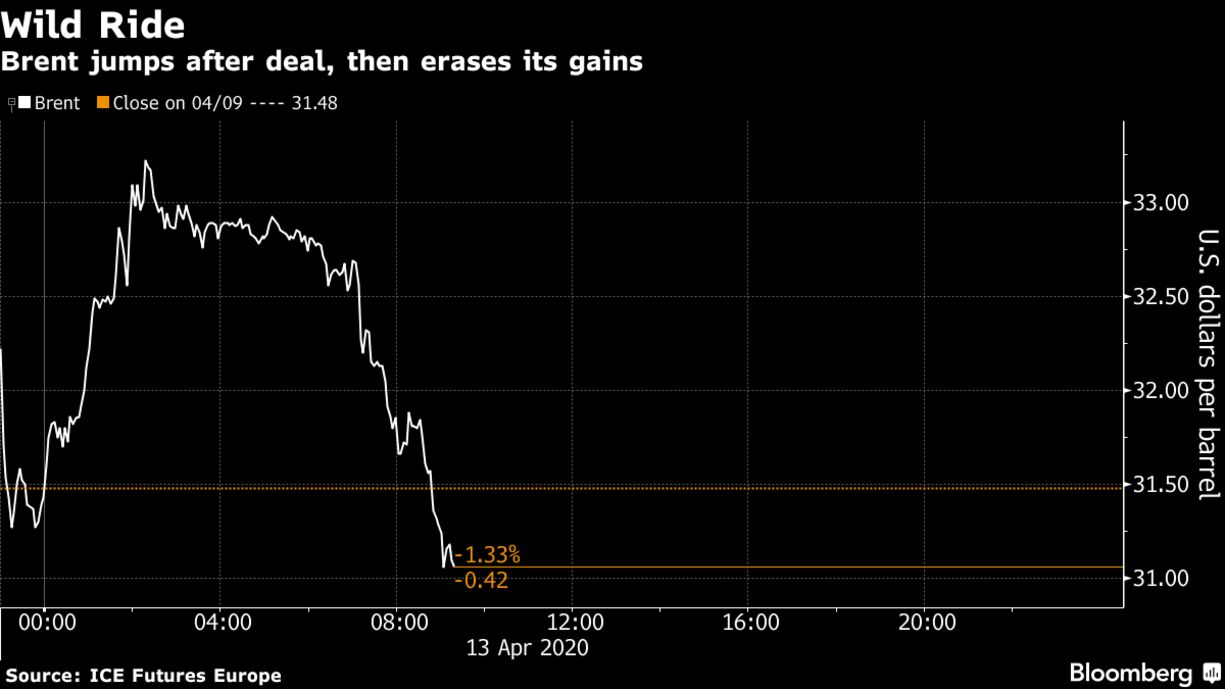Oil surrendered gains after rising in early trading as investors weighed whether an unprecedented deal by the world’s biggest producers to cut output would would be enough to steady a market pummeled by the coronavirus. Futures in London were down 0.4% after the OPEC+ alliance agreed to a plan to slash production by 9.7 million barrels a day starting in May, ending a price war between Saudi Arabia and Russia. The group reached a deal following days of intense negotiations after Mexico declined to endorse the original agreement reached Thursday.
The U.S., Brazil and Canada will contribute an additional 3.7 million barrels on paper as their production declines, and other Group of 20 nations will cut 1.3 million more. The G-20 numbers don’t represent real voluntary cuts but rather the impact that low prices have already had on output, and they would need months, or perhaps more than a year, to take effect.

Oil prices have been in freefall since the middle of February as some of the world’s biggest economies went into lockdown to try and stop the spread of the coronavirus. Whether the OPEC+ deal will be enough to steady a market where demand losses may be as much as 35 million barrels a day and storage space is rapidly running out remains to be seen. Goldman Sachs Group Inc. called the agreement “historic yet insufficient”.
“The deal is a little less than the market expected given that Mexico has gotten off easy,” said Andy Lipow, president of Lipow Oil Associates LLC in Houston. “The hard work lies ahead given that the market is very skeptical that OPEC+ are actually going to be able to come up with their near 10 million barrels a day of production cuts.”
Brent for June delivery was 18 cents lower at $31.30 a barrel on the ICE Futures Europe exchange as of 11:55 a.m. in Dubai. The contract jumped as much as 8%, or $2.51, earlier in the day. It lost 7.7% last week and has fallen from $66 at the end of last year. West Texas Intermediate for May delivery was trading 0.7% higher at $22.91 a barrel on the New York Mercantile Exchange, after dropping almost 20% last week.
The voluntary reductions by OPEC+ would only lead to an actual 4.3 million barrel a day cut in production from first-quarter levels, assuming full compliance by core-OPEC and 50% by other participants in May, Goldman said in a note. The bank sees demand losses in April and May averaging 19 million barrels a day.
